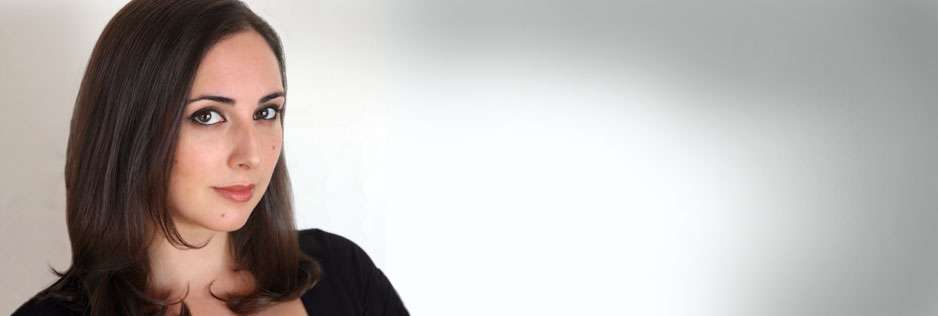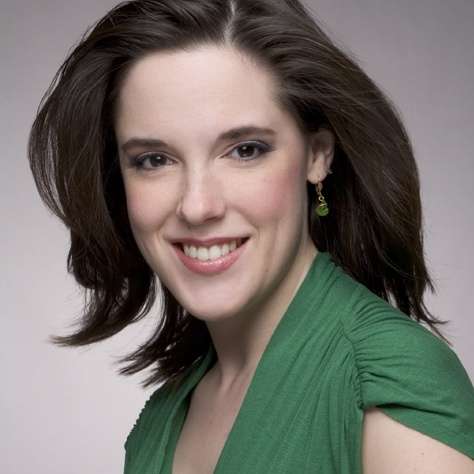|
Back
Opening The Shudders New York
Paul Hall, Juilliard School
05/31/2012 - 06/03/2012
Bohuslav Martinù: Nonet, H. 374
Maurice Ravel: Chansons Madécasses
Arnold Schoenberg: Pierrot Lunaire, Opus 21
Cecilia Hall (Mezzo-soprano), Mary Elizabeth Mackenzie (Soprano)
ACJW Ensemble: Yoobin Son (Flute), Moran Katz (Clarinet), ToniMarie Marchioni (Oboe), Shelley Monroe Huang (Bassoon), Leelanee Sterritt (Horn), Anna Elashvili, Emily Popham Gillins (Violins), Hamilton Berry, Yves Dharamraj (Cellos), Brian Ellington (Bass), Marina Radiushina, DavidKaplan(Pianos)

C. Hall (© Columbia Artists Management)
Ancient Egyptian legend tells of Alexander the Great visiting the Oracle at the Oasis of Susa in 331 B.C.E, transported to the astral heavens by the mysterious sounds of a cello engendering mezzo-soprano singing the poetry of the 18th Century revolutionary Evariste Désiré de Forges Parny against the melodic lines of Maurice Ravel.
Ignoring the time-space dilemma, the conceit is not totally absurd. For the first of Maurice Ravel’s three Madagascar songs has a the vision and mystery which could easily have emanated from the Oracle of the Egyptian desert. With its dark orchestration (mezzo, flute, cello, piano) and the poetry of a most esoteric source, that one song, “Nahandove”, transports the listener to a region which Ravel never reached again.
This was not the first work of the ACJW Ensemble at Paul Hall last night. The group, drawn mainly from the Juilliard School, accomplished musicians all, started with one of the final Martinù chamber works. The Nonet is like a concerto for nine instruments, and it was played with a vivacity and lightning-quick coordination by these players. It was not the most original Martinù (at times it was almost like an outtake from Stravinsky’s L’Histoire du soldat, but had enough Martinù harmonic trademarks, and that singular Czech mélange of the forlorn and the felicitous to be a good opener.
But nothing, not even the final Schoenberg, has the bewitchment of Ravel’s music to that so sensuous poetry. The first time I heard this, Janet Baker was the oh so clean soloist, and the work floated. Cecilia Hall has a more operatic voice, the opening poem was more a drama than a revery, but her voice is so gorgeous, her French pronunciation so clear, that the work was still transporting.
Ms. Hall’s mezzo was liquid when necessary, sensuous and soft-grained in the final song of copulation. The second song could have been composed by the Haitian revolutionary Toussaint Louverture or Venezuelan President Chavez, a strange choice by the seemingly genteel Maurice Ravel. It is of absolute racial hatred, and perhaps no mere singer can say “Aoua! Beware the white men!” with sufficient ferocity. But Ms. Hall was came close enough for discomfort.

M.E. Mackenzie (© Courtesy oft the artist)
That was Ravel taking 18th Century didactic poetry which still works today. O the other hand, I have the feeling that a century from now, Arnold Schoenberg’s 12-tone music will lie in the archives, as inspired composers wonder why the hell they were told to follow their scales like little children reciting nursery rhymes.
What will certainly last are the so-called expressionist works like Pierrot Lunaire–written exactly one century before last night’s performance. It can still amaze, baffle and sometimes scare audiences.
It did that last night. The first row in Paul Hall walked out en masse after the first section, much to the amusement, and probably satisfaction of the musicians. And why not? This is scary stuff. And yes, Schoenberg was using “formal” modes, like passacaglia, barcarolle, Chopin waltzes etc. But nobody has to follow that. They just have to listen to the ghastly, death-rattling music.
Even if you don’t know German, the eerie glissandos, the harsh clarinet and flute, the soprano climbing up and down on the scale to the lowest notes, is shuddery stuff. Schoenberg himself said, a decade after he wrote it, “If listeners are musical, they don’t give a damn about the words.”
And ACJW played it for all the scares it was worth. These musicians are sharp and electric. I followed the score at times, and they didn’t miss a hemidemisemiquaver.
Mary Ellen Mackenzie didn‘t miss a note either, but one didn’t expect a soprano of her experience and fame to do that. She could scream with the best of them, she had obviously read how to make every syllable count, hit out the notes without hanging onto them with hair-sharp rhythms.
My problem was a small one. Quite rightly, Ms. Mackenzie stood amidst the orchestra, not out front. Still, her voice towered above the instruments, like it should have done on a recording. Live, though, I just wanted her to be part of the ensemble, to merge with all the impossibly difficult bass clarinet and piano and violin.
Or perhaps, like a work by Luigi Nono, Mr. Mackenzie could have wondered around the players, taken her place at the back ot the stage, stood in the wings. After all, Schoenberg was an Expressionist painter as well as musician. Let the expression be tricky, uninhibited. Let the sounds issue from a dark corner or a sudden spotlight.
But that would have been my druthers. She certainly did a creditable job, a stunning job of singing. As a series of songs with instrumental accompniment, they were faultless. As theatre–the theatre of blood, the theatre of the absurd–it left a bit to be desired.
Not to worry. Pierrot Lunaire has passed its first century with flying colors, and Schoenberg will have at least one more millennium to share its ghastly visions.
Note: This whole concert will be repeated Sunday at 5 p.m. in the unlikely venue of a church, Our Saviour’s Atonement Lutheran Church, 178 Bennett Avenue, at 189th Street, Washington Heights,
Harry Rolnick
|